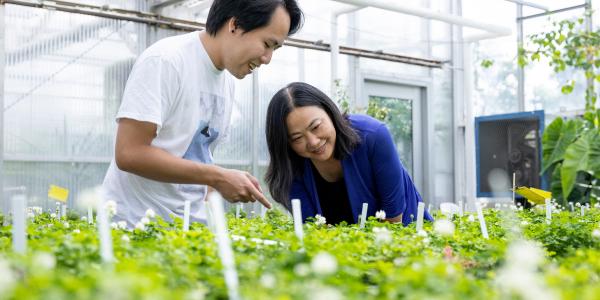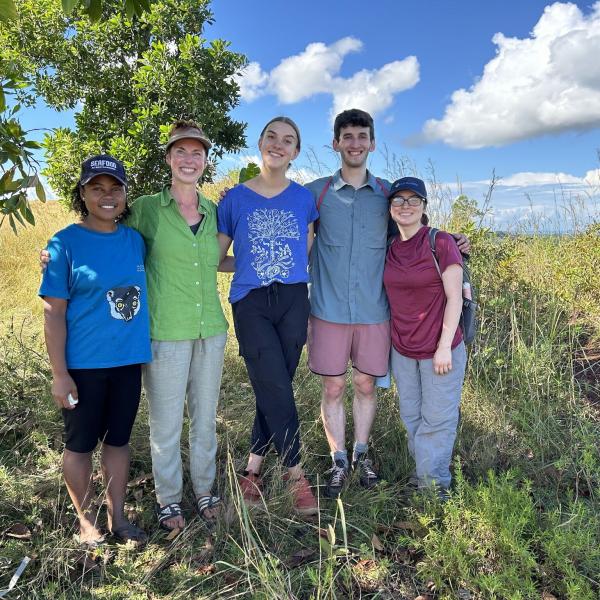Xuehua Zhong studies epigenetics — how genes are turned ‘on’ or ‘off’ — and environmental adaptation in plants. A new project, funded by a $2 million grant from the National Institutes of Health, will ultimately enable new applications for medicine and human health.
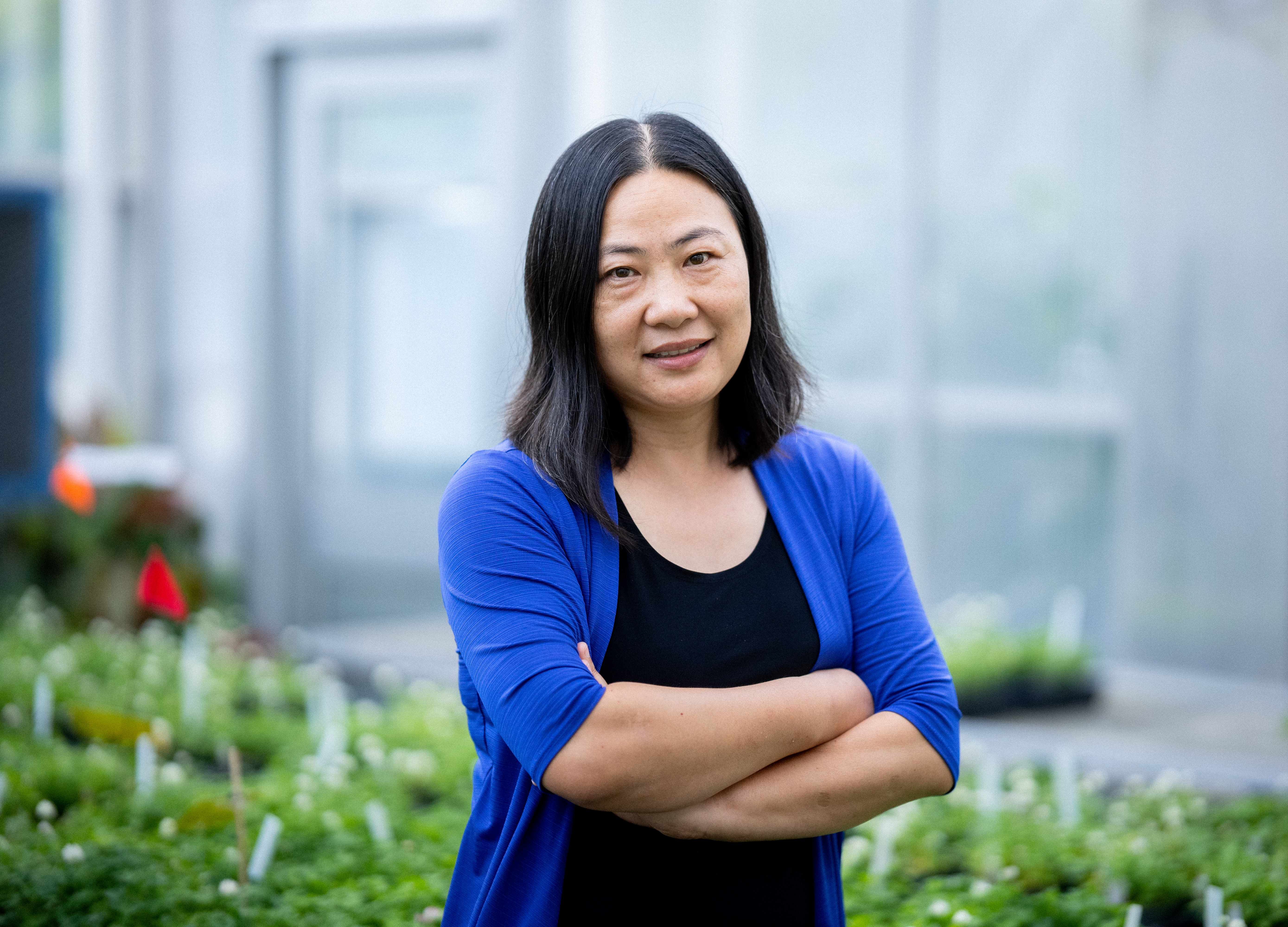
Xuehua Zhong, professor of biology and dean’s distinguished professorial scholar, began her journey to epigenetic research as a curious kid growing up in rural China with a blossoming interest in science.
“I grew up in the countryside next to the Pacific Ocean, and so I spent a lot of time out in nature. I was always curious about the world around me. I had a million questions that nobody could help me answer,” Zhong recalled. That early interest in the natural world expanded into observations and questions about human health, leading her to study microbiology and immunology as an undergraduate at Wuhan University in the early 2000s.
At the time, the Human Genome Project was nearing completion. The project ultimately illuminated as many questions as answers, particularly about noncoding DNA, which makes up a whopping 98-99% of human DNA. Huge chunks of the human genome remained functionally mysterious. That enormous question mark was irresistible to Zhong, who as a doctoral student shifted her focus to genetics and how genes are — or aren’t — expressed.
Zhong now studies epigenetic regulation of plant traits and how plants adapt in response to environmental changes to meet growth and survival needs. Epigenetics, Zhong explains, is all about the variety of genetic expression.
“Imagine you’re making a beautiful cake. The base of the cake is genetics, and what you put on top is epigenetics,” Zhong said. “Say you start by baking a chocolate cake, then you add strawberry frosting or sprinkles or whatever you like to modify how the cake looks, but underneath you still have the same base. For every genome, there are many epigenomes, and epigenomes are reversible. If you don’t like how the cake looks, you can remove the topping and remake it.”
If the basic ingredients are an organism’s genes and the way those genes get expressed is the icing on top, then Zhong’s work focuses on the many frosting varieties available and how that epigenetic modification might be altered without any change in the underlying genetic blueprints.
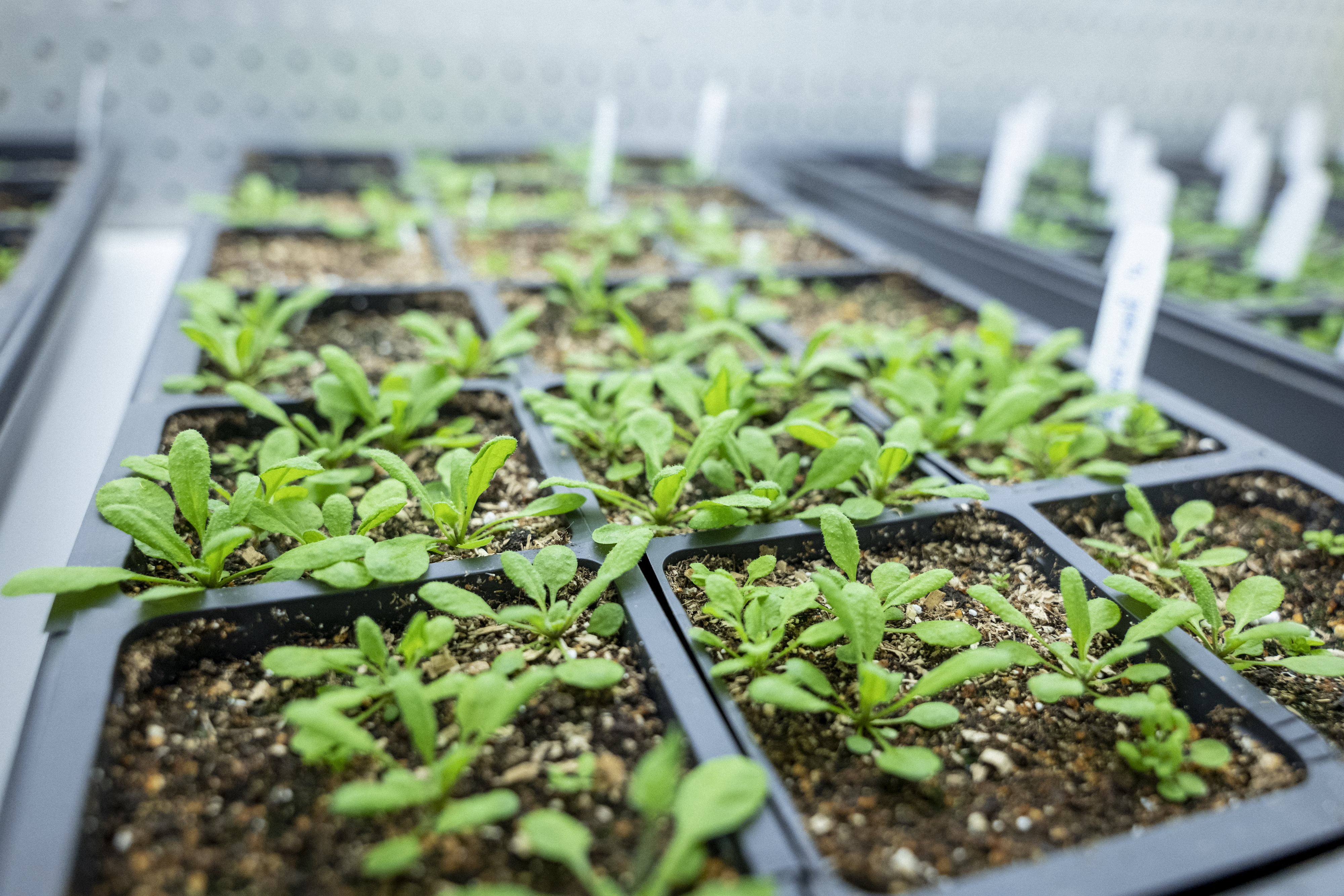
Since joining the WashU faculty in July 2022, Zhong has been busy spinning up her greenhouse laboratory full of Arabidopsis thaliana, or thale cress, her lab’s main experimental model system that features remarkable similarities with human epigenetic mechanisms, and getting new collaborations and research projects off the ground. With the support of a $2,143,167 Maximizing Investigators’ Research Award (MIRA) from the National Institutes of Health, Zhong will study epigenetic regulation of genome integrity, environmental interaction, development, and diseases.
Zhong’s MIRA project seeks to understand the molecular mechanism of epigenetic regulation — what makes certain genes switch ‘on’ or ‘off’? — and the functional consequences of adaptations in the epigenome under developmental and physiological conditions, including environmental stressors such as increases in temperature. As part of the interdisciplinary project, Zhong is developing an innovative CRISPR/Cas9-mediated engineering system for epigenome editing and contributing to the development of other tools to correct aberrant epigenetic modifications, particularly those disturbed in developmental disorders and diseases. The work will ultimately enable new applications for medicine and human health.
Zhong also recently received an $855,000 grant from the National Science Foundation for research on how plants sense the ever-changing environment and reprogram their epigenetic landscape to achieve adaptability and robustness over time. The project specifically considers how plants respond to exposure to high levels of ultraviolet radiation and the mechanism of UVB-induced DNA methylation suppression and inheritance in plants. This study could ultimately enable the development of technology supporting biomass production and agricultural improvement, for example by modifying a plant’s lifecycle to align with shifting seasonal changes.
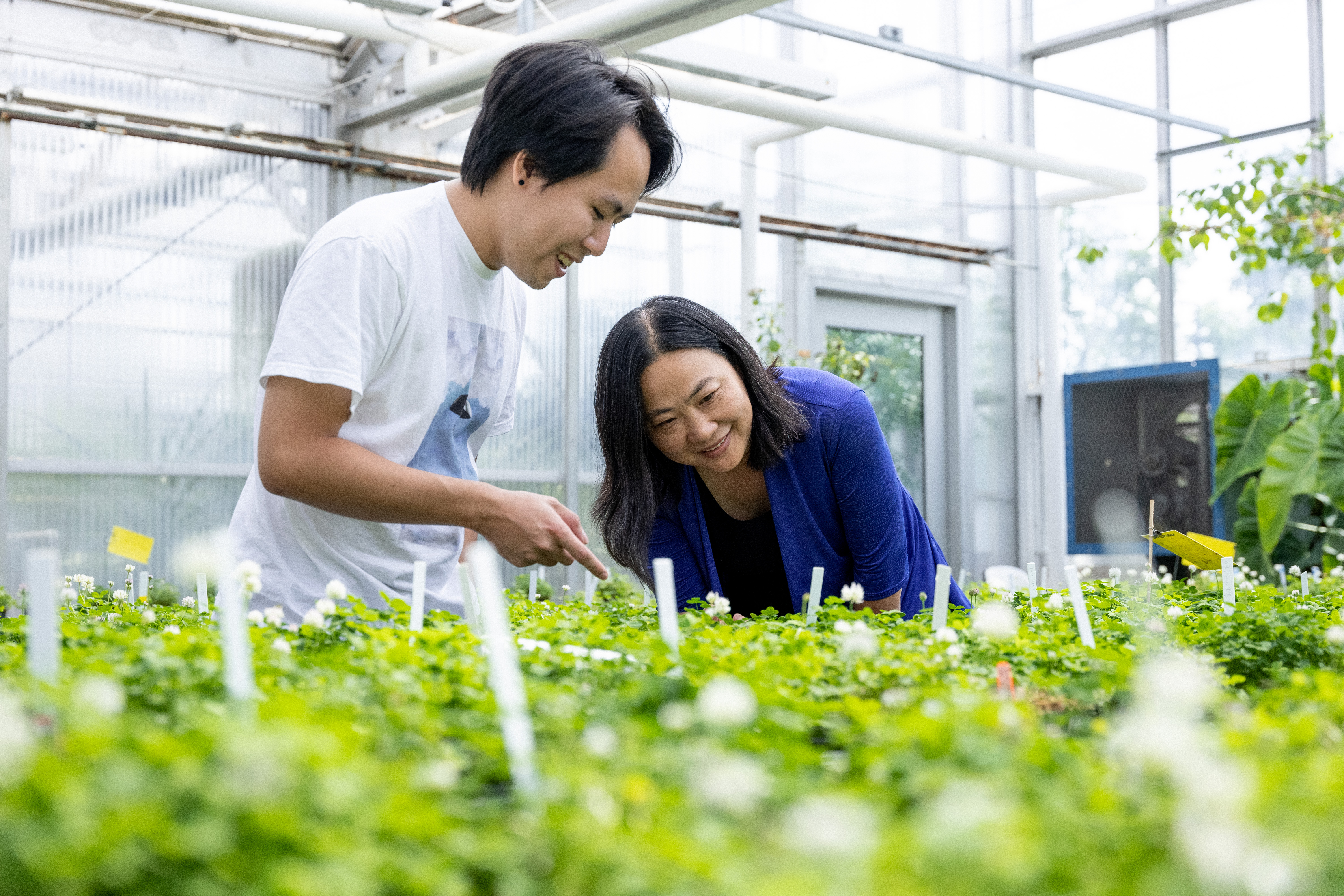
As she carries out these projects, Zhong envisions opportunities to mentor young scientists from diverse backgrounds. She is one of four women faculty hired in the Department of Biology this year.
“Outreach, bringing science to people, and mentorship, bringing people to science, are some of the most rewarding parts of my job,” Zhong said. “Connecting with the next generation, inculcating their interest in science, especially plant science, is a true joy. I’m particularly aware of ways I can be a role model for women and other minorities in STEM. A lot of my lab members are women, and I hope they see me as an example of where they might be in 10 years.”
Her multidisciplinary work has led Zhong to also cultivate fruitful connections across schools, and indeed it was the promise of working with vibrant colleagues and research centers across campus that drew Zhong to WashU from her previous appointment as an associate professor at the University of Wisconsin-Madison.
“The strong community here in both plants and epigenetics is what initially attracted me to WashU, but since I’ve arrived, I’ve already connected with collaborators from different areas, including engineering and data science, where we’re working on things like mathematical modeling and genetic engineering,” Zhong said.
“There’s great opportunity and support here to do important work on challenges related to climate and food production,” she added. “As a long-term goal, I’m excited for my lab to make big contributions to addressing agricultural problems, translating epigenetics into applications to make plants more resilient, and mitigating the impacts of climate change.”
